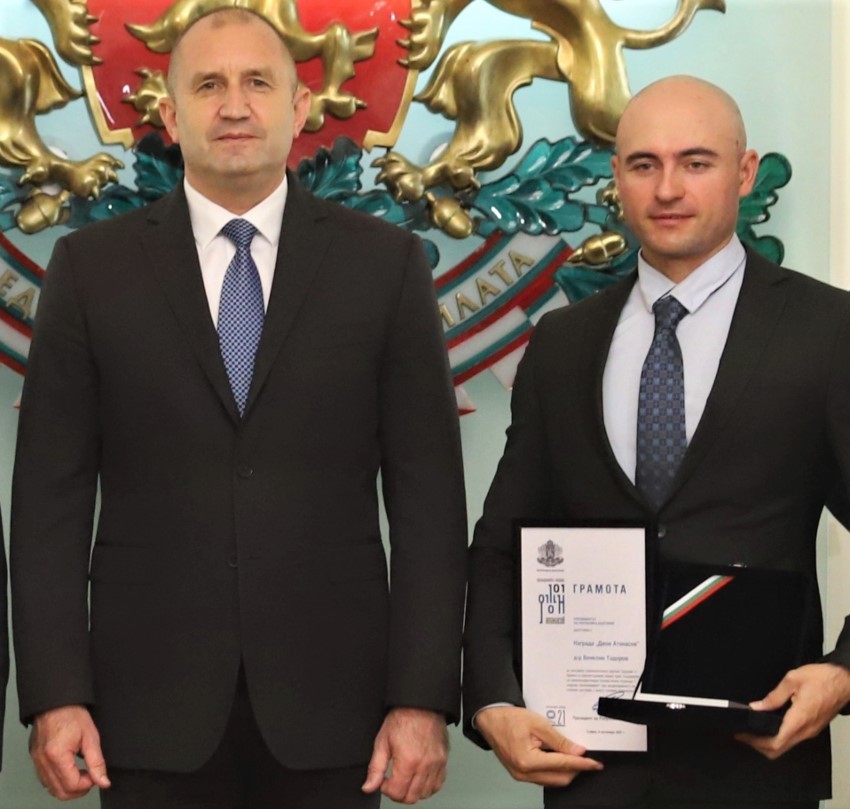Researchers from the Institute of Mathematics and Informatics of the Bulgarian Academy of Sciences (BAS) set a world record for developing an algorithm that could bring about a major technological breakthrough in the application of quantum computers. Head of the project is Dr. Venelin Todorov, whose work, in his own words, is called mathematical modelling or applying mathematics in other branches of science.
With the help of the algorithm, the scientists from the BAS succeeded in solving the physics problem of Richard Feynman, and took one step further towards the computer of the future.
“Our approach can be used to study what conditions are needed for a quantum computer to function at room temperature, as at the moment it cannot exist and disintegrates immediately,” Venelin Todorov explains. “It can study potential computational structures that are candidates for the nanostructures in quantum computers. We are hoping to have some small contribution in this sphere – the colleagues from the Bulgarian Academy of Sciences are continuing their work, researchers from USA are now involved. We know that one of the targets of the digital Europe programme is for the continent to have its first quantum computer by 2030.”
The algorithm has the potential of finding a high-accuracy solution in less than one second, using a laptop. Which opens the floodgates for the development of artificial intelligence and intelligent systems.
“Our method improved the result dramatically – to the power of 3 or 4, compared to the now existing algorithms, and this means three zeros after the decimal point, or an accuracy rate that is one thousand times higher,” the scientist says. “These sensitivity indicators are very important in gauging the reliability of the results of the model, as they can be used to monitor the concentration of dozens of air pollutants with a higher degree of accuracy. Studies have shown that Sofia is somewhere around 500th position in the world in this index because big cities are prone to pollution.”
The results obtained as part of the project will also contribute to the fight against Covid-19. “We shall be able to monitor the transmission rate of the disease,” Venelin Todorov explains. Besides in medicine, the algorithm is also applicable in spheres such as sustainable farming, clean energy, cybersecurity.
The scientist says that artificial intelligence is now all around – it is at the basis of many applications, including the virtual assistants in smartphones, affecting online shopping, the search engines which collect and process an enormous amount of data.
“We can successfully solve equations such as the ones described in the processes of training of neural networks,” Venelin Todorov says further. “Our method has the potential of transforming major sectors of industry, all the more so that economic growth and the prosperity of Europe will increasingly rely on the implementation of such intelligent system of huge dimensions. That is the future.”
The young scientist believes that God is often the motor of scientific discoveries. That is why he draws his inspiration from the founders of quantum physics Werner Karl Heisenberg, Max Planck and Erwin Schrödinger, who organically combined science with faith. Mathematics grabbed Venelin Todorov when he was still a child, but there is one more reason why he wants to find out where God will guide him in overstepping the human boundaries in the search for knowledge – his late mother who wanted him to be a scientist. It was to her that he dedicated the John Atanasoff Award he received from the President last year.

Venelin Todorov dreams of getting to the bottom of the “bowl of science” one day and seeing whether God really is waiting there, as Heisenberg believed. Until then, he is devoting his mind and his heart to the quantum world.
Photos: Pixabay, math.bas.bg, BGNES
Leading researchers and lecturers from the St. Kliment Ohridski University in Sofia and the Institute of Astronomy and National Astronomical Observatory of the Bulgarian Academy of Sciences will be paying a visit to the Museum of Natural History in..
The village of Oryahovitsa, Stara Zagora region, today celebrates its symbol - the walnut tree. There will be a Festival of the Walnut with a varied programme featuring the Kazanlahsko Nastroenie (Kazanlak Cheer) Orchestra, the soloist of..
Disputes in Croatia over sending military personnel to NATO mission in support of Ukraine NATO Acting Deputy Secretary General Boris Ruge visited Croatia to explain to local MPs about the Alliance's mission in support..
The traditional Bulgarian Christmas picnic, organized by the Bulgarian Cultural and Social Association "Rodina - Sydney" and the Bulgarian School..
Two graduates of the Bulgarian School "Saints Cyril and Methodius" in Jordan presented their achievements at an event at their school "Hadi al Muhammadi"..
Radmila Sekerinska from North Macedonia appointed NATO Deputy Secretary General NATO Secretary General Mark Rutte has appointed Radmila Sekerinska..

+359 2 9336 661
